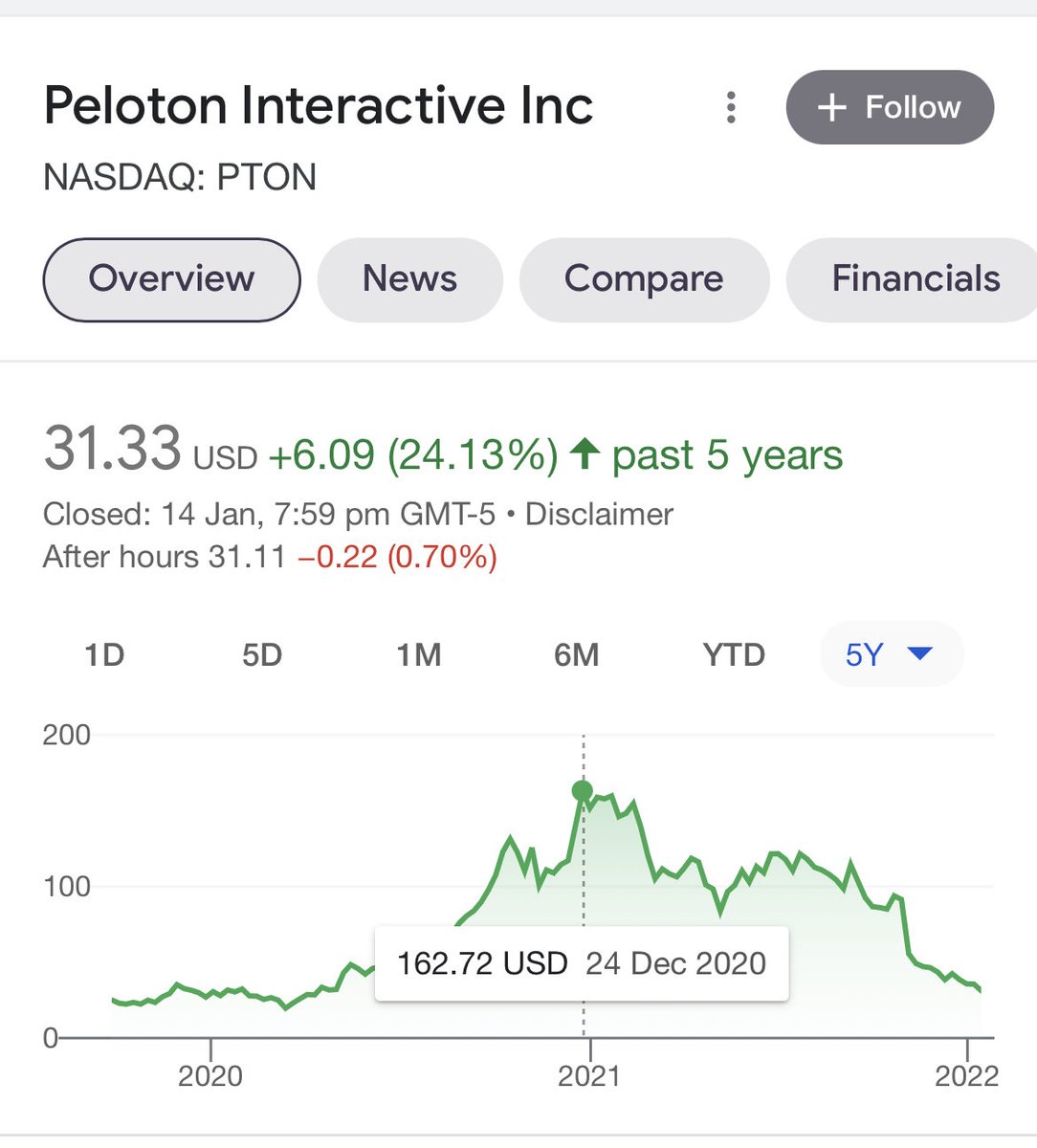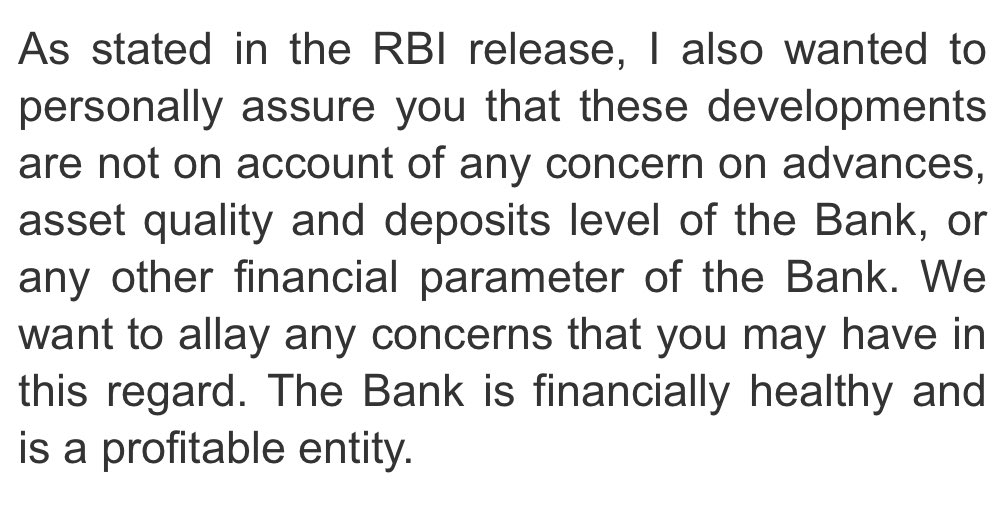
There are two types of templates/patterns here.
https://twitter.com/Sanjay__Bakshi/status/1482207990375915521
The first one is the "Peloton template." This is an example of a business that didn't make any money - not even in a boom year. google.com/finance/quote/…. And yet, in December 2020, during covid times, its market cap exceeded USD 50 billion.
The lesson about this template was offered by Buffett in letter in BRK's annual report for 2000: "We readily acknowledge that there has been a huge amount of true value created in the past decade by new or young businesses and that there is much more to come."
"But value is destroyed, not created, by any business that loses money over its lifetime, no matter how high its interim valuation may get."
The 2nd template is the "Zoom template" — a profitable business. But in October 2020, the market valued it at almost USD 160 billion while full-year earnings for that year (ending in Jan 2021) were going to be USD 671 mil - a P/E of 238x.
Two lessons about this template (of which Zoom is a representative example). One, often such businesses are simply borrowing future period earnings.
And two, good businesses can become crazily overvalued during their "good days" causing disappointment for buyers in the boom time.
To be sure, some of the businesses that conform to the "Zoom template" will make stockholders very rich over time because their earnings growth over time will justify what looked like a crazy valuation at a P/E of 238. But those would be very very few.
There are many listed businesses in India today, which enjoy rich market valuations, and which conform to one of these two templates - Peloton or Zoom.
• • •
Missing some Tweet in this thread? You can try to
force a refresh







